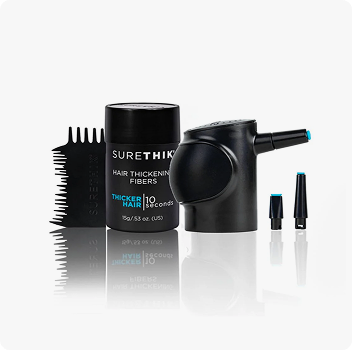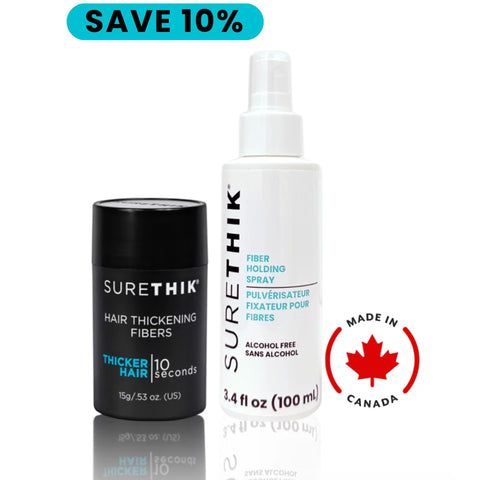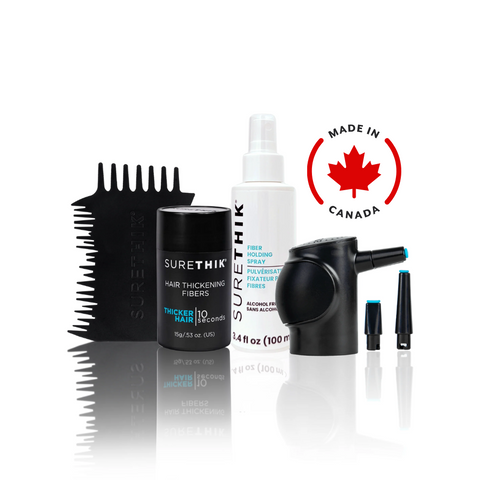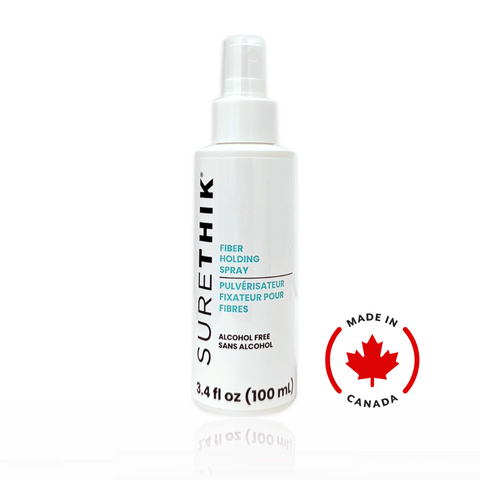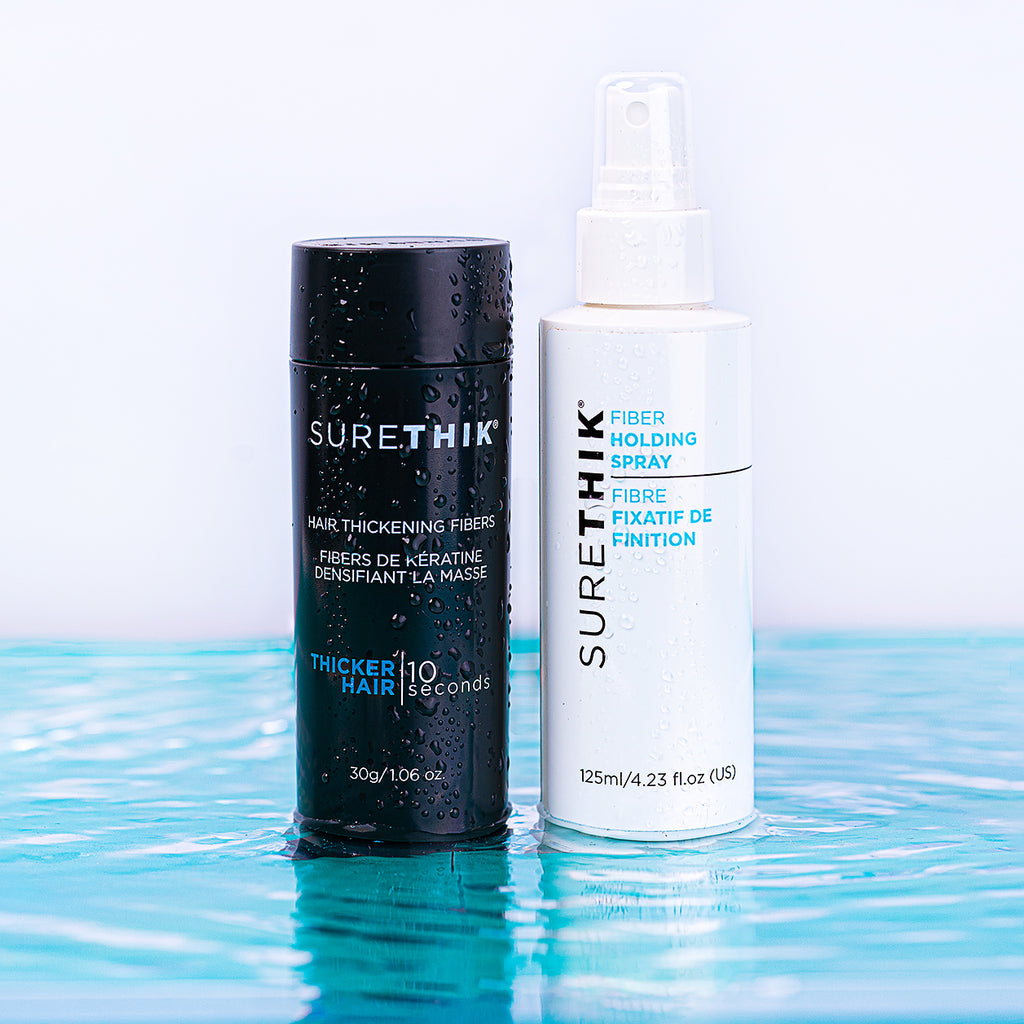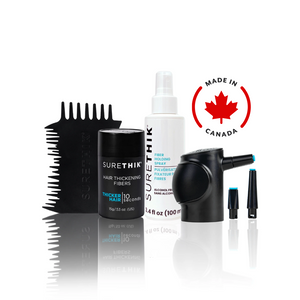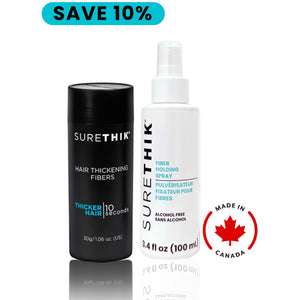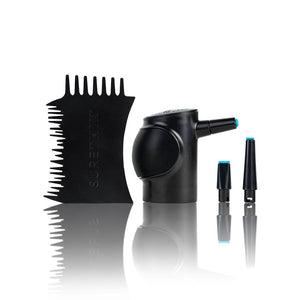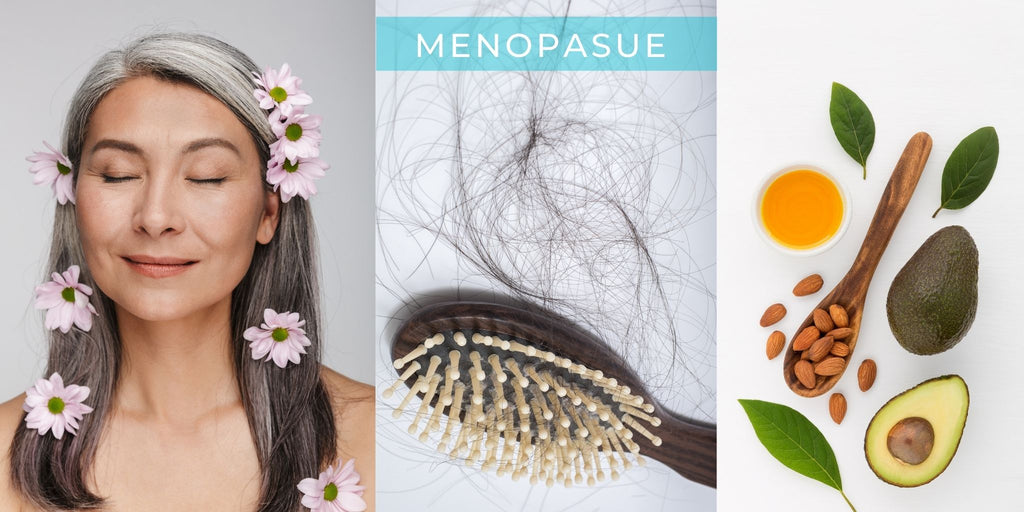
Menopause and Hair Loss
The typical age of menopause is about 50 years old, and some women notice a change in hair pattern in the months or years preceding up to it. The volume and quality of the hair frequently appears to deteriorate, with some women reporting that hair does not grow as much as it used to. When washing, more hair appears in the basin, and hairbrushes quickly fill up as stray hairs are pushed away. Some women will get more severe hair loss, with thinning at the top of the head, the sides, or more widespread hair thinning all over the head. Female Pattern Hair Loss is the name given to this condition (FPHL). Complete hair loss, as seen in males who go bald on occasion, is far more uncommon in women and is typically caused by a medical illness or medical treatment, such as chemotherapy.
Read more for more information.

THE AFFECTS OF MENOPAUSE:
Why might your hair be affected by menopause? Hormones, of course, are the answer. A lack of estrogen may result in a dull mane. While diminishing hormone levels may be the most evident cause, other variables may also be at play. The following are some examples:
- Autoimmune Disease
- Stress
- Thyroid disorders
- Low Iron

It's easy to see why hair loss prevention is so vital. Hair is a vital element of many women's identity, confidence, and self-esteem. When hair loss has a negative impact on your self-esteem, it might lead to sadness, anxiety, or social seclusion. Hair loss is caused by a decrease in estrogen and progesterone levels during menopause. The production of estrogen and progesterone decreases during menopause, resulting in hair loss. Hair grows quicker and stays on the head longer when these hormones are present. Hair grows more slowly and gets significantly thinner when estrogen and progesterone levels fall.
WHAT ARE THE CAUSES OF HAIR LOSS DURING MENOPAUSE?
Female pattern hair loss is prevalent, and it becomes worse with age and differs by ethnicity. Although the illness can strike at any age, it is most frequent after menopause. This does not rule out the possibility that hormones are to fault, while estrogen may have a protective function in keeping hair in the 'growth phase.' Age is a factor, and while women may take aesthetic care of their hair, it is one component of the aging process that we cannot always control. Both male and female hair loss may have a genetic component, and you may observe a familial relationship. Hair development can be influenced by periods of acute stress on the body, such as disease, mental stress, and crash diets. Some drugs may also have an effect.
SIGNS OF HAIR LOSS AND HAIR THINNING:
Hair thinning is a frequent concern among women as they become older. This hair condition is classified as a mild to moderate instance of hair loss. Thinning hair, unlike hair loss that is already common, does not always result in baldness. The issue is that it makes your hair appear thinner in some areas of your head.
- Excessive usage and application of color treatments, relaxers, and perms, among other treatments, is referred to as over-treating hair.
- Unmanaged stress excessive stress can cause cortisol, a stress hormone, to rise dramatically in your body. It is extremely possible that if you generate too much of it, it will harm fresh hair development.
- There's more hair on your brushes, pillow, shower or sink drains, and the floor.
WAYS TO HELP DECREASE THE AMOUNT OF HAIR LOSS OR HAIR THINNING:
Problems with ageing hair, particularly hair loss and thinning hair, can cause worry, anxiety, and even social seclusion in many women. Self-esteem and confidence are also affected. While hormones and heredity can be blamed, there are certain aspects that can be changed, such as lifestyle and environment.
Here are a few things you can do to boost your hair's health and appearance:
- Pulling your hair back into a tight ponytail, up-do, or braid, or twisting it in any manner, is not a good idea. Pulling on the roots can damage the follicle, resulting in permanent hair loss.
- Wash your hair on a regular basis, but not too often. While it's important to remove dead skin, excess oil, and product buildup to encourage hair development, don't over-dry your hair and scalp by over-washing it or using a cleaning shampoo. SureThik Shampoo cleans deep into the pore to remove build-up, which is essential for healthy hair and scalp regeneration. Our tri-cleansing ingredients unclog pores and offer thorough cleaning, removing excess sebum and debris that can be damaging to the follicle. The hair is smooth and manageable after treatment. Antioxidants help to strengthen hair that is weak or damaged from the roots up. Hair and scalp are left feeling clean and revitalized.
- Make sure you're eating a nutritious plant-based diet that includes nutrients that support strong, healthy hair growth. Protein, Omega-3 fatty acids, complex carbohydrates, biotin, iron, zinc, Vitamin A, Vitamin C, Vitamin D, Vitamin E, and flavonoids are among these nutrients. The best way to get nutrients is through food, but if you believe you have a vitamin or mineral deficit, talk to your doctor about supplementing.
WHAT IS THE RATE OF HAIR LOSS DURING MENOPAUSE?
Menopause hair loss is quite frequent, believe it or not. Hair loss or bald patches affect up to two-thirds of postmenopausal women. Hair loss after menopause is prevalent in all ethnic groups. Genetics is also considered to have a role in hair thinning after menopause. You're more likely to suffer thinning hair during menopause if you have a family member who has experienced it.

STAY FOCUSED AND RELAXED: STRESS
At some time in their lives, everyone is subjected to stress. Stress can sometimes result in a bodily reaction or symptoms. Each day, the human head loses 50 to 100 hair follicles. When you consider that the scalp has over 100,000 hair follicles, this isn't much. Stress-related hair loss occurs when your body is under so much stress that your hair comes out more quickly than it would normally. You may be so anxious that you rip your own hair out in certain circumstances.
You can't always avoid stress in your life, but you can frequently reduce the amount of stress you have. When you reduce stress in certain areas, you have more energy to deal with the tension that can't be avoided. When possible, these approaches can assist you in reducing stress in your life.
TEMPORARY FIX:
HAIR LOSS CONCEALER:
Hair Building Fibers are fantastic for anyone who wishes to conceal their thinning hair problem. These keratin-derived fibres are safe and blend seamlessly with your own hair to give it a thicker, fuller appearance. SureThik hair fibers is a one-of-a-kind organic keratin protein complex that has been finely sliced into micro-sized fibres. These tiny hair strands add remarkable density, volume, and complete covering to your current hair and scalp. SureThik is comprised of the same organic keratin protein that makes up your natural hair. For both men and women, it is a fully safe and natural treatment.


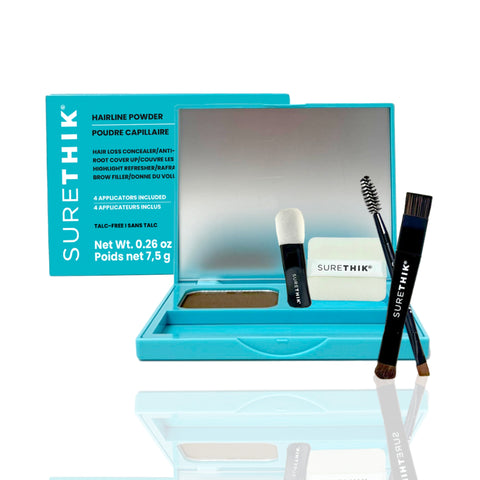
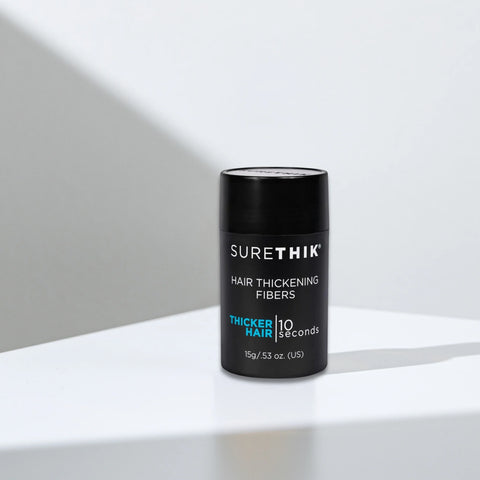
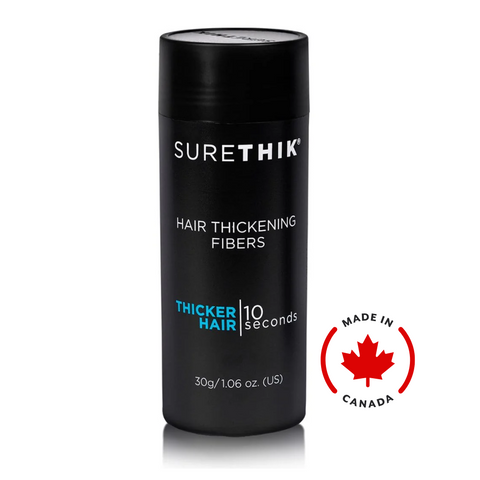


 United States
United States